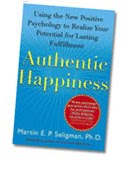


Shivaratri & Lincoln’s Birthday: February 12
I follow the Hindu festivals, much as I observe the Jewish holidays, Thanksgiving, Easter and Christmas. Any excuse to pray and meditate! Any pretext for bringing myself into the Presence of this moment! The cycle of holidays through the year elevates human life, takes us out of the pedestrian and provokes reflection.
The Art of Asking Questions
The Art of Asking Questions
There’s a scene in the first HOME ALONE, a truly classic movie, where a child of about 5 years climbs into a van waiting to whisk a large family to the airport. The enterprising child besieges the driver with questions. He leans close into the driver and queries him relentlessly about all sorts of matters, a stunning barrage of interrogatory, verbal machine gun fire. The driver’s brain comes undone. He’s left rattled and nettled and hopelessly askew. It’s the first domino that falls in a trail of them, winding up with… a child left home alone to fend for himself during the holidays.
I think of this scene often (and isn’t that what makes a movie classic, the way particular scenes haunt you forever?). This scene comes to mind because I have a four-and-a-half-year old daughter who regularly enacts it. Daughter? Shall I call her the demon imp of questions, the patron saint of why, how, what, and how come?
As I write this, she sits next to me at the dining room table with a pad of paper. “What do we need from the store? Do we need sugar? How do I draw a ‘K’?” she asks. I surmise that she’s making a grocery list, something she’s watched me do a thousand times. “Can you show me how to draw a ‘K’?”
This is only the beginning. As long as she’s around me, and I don’t turn on the TV babysitter, she’s going to come up with questions. “Then what do we need, mama, after milk?”
“Eggs,” I tell her.
“How do you spell that? Do you like my ‘E’? Does ‘G’ have a kickstand like this? Do we need balloons? How do you spell ‘balloons’?”
It’s partly about observing and making sense of the world. The other day she launched herself like a missile into the bathtub and splashed around happily for a few minutes, making an aquarium of our bathroom. Then she turned serious. “Why does the water get higher when I get in? Why can’t I hear my hands when they clap underwater?”
So my hapless husband and I wracked our brains to explain the volumetrics of water to her.
Sometimes it’s about avoiding an unpleasant activity, like bedtime or picking up her crayons. Nothing will elicit a stream of questions like closing the cover of the last bedtime book. “How come the bear in that story has brown fur? Do all bears have brown fur? What about polar bears? Can you really fly all the way to the moon? How far away is the moon? Is the moon next door to the sun?” How long can she prolong the delicious moments of cuddling and conversation, before we flip off the light and close the door to her room?
And, naturally, the questions are about drawing my attention, or her father’s, or that of one of her three big sisters. This little sprite likes to engage with people. She enjoys the limelight. If she can draw us in with a question–she’s got us. She figured that out a long time ago. Not that it’s entirely self-serving. She can maximize the utility of what she’s doing, and suck in our attention while also… making sense of the world.
Most of the time I enjoy my little one’s questions. Sometimes they fry the gray matter rattling around in my cranium, sure. I get tired, I get exasperated, hey, I’m not the Buddha, and I don’t want to put together an explanation of why the sky is blue while I’m trying to make a dinner salad and, simultaneously, explain to my 14-year-old middle daughter why she can’t attend a football party where there will be 18-year-old men.
But often, in response to these questions, I experience the same piquant thrill that I do when I’m traveling. That is, I’m jolted out of my habitual way of seeing the world, and I look with new eyes, and fresh wonder, at the world around me. Isn’t the blue sky a kind of miracle, anyway?
My sweetie doesn’t do what adults sometimes do: disguise judgments as questions. This is the crucial difference, this matter of innocence. Her questions are really questions, not statements, even if they have an ulterior motive of getting me to pay attention to her or of getting her out of eating broccoli. She wants to know, and to understand. So her questions arise out of the innate art of our human core, the art of genuine curiosity.
On Transparency
Of late I’ve been thinking about karmic entanglement. Maybe it’s because 2008 is drawing to a close; maybe it’s because Ketu, the moon’s south node & the keeper of the book of the past, is transiting the ruler of my chart. The past, and my past actions, are much in my consciousness.
I think it comes down to mutual forgiveness. Meaning, forgive the other person, and forgive yourself. Send forgiveness to neutralize the acid of interaction that’s fraught with hurt, longing, anger, pain, or even with the alkalinity of love and kindness. Peaceful forgiveness, so that the interaction returns to a clear state without the varnish of meaning, without the binding of a bond, any bond. Transparency. Liberation.
As a believer in reincarnation, I have a sense of the occlusive stickiness of the wheel of birth and rebirth, and how action and reaction, cause and effect, desire and fulfillment play out, over and over again. I wish to stop riding this wheel like a caged rodent. I think a lot about how to get off the ride. It’s also scary. What will happen to my precious individuality when I merge with all that is?
But the first step is to release. May all conscious beings be released from their suffering.
In my next lifetime
In my next lifetime, when I come back, I will ski more and worry less.
I will begin every dinner with dessert, and it will be dark chocolate,
or something gooey
and coconut.
I will choose dresses for color and not for whether or not they make
me look slim. I am thinking yellow,
purple, and butterfly prints
in chintz.
I will start using sun-block when I am 12, the same age
when I will begin practicing
yoga,
because it makes me feel so peaceful and good.
In my next lifetime, when I come back, I will choose
a comfortably upper-middle-class family to host my wandering
soul. I’ve seen that great wealth imposes anxiety
and demands of its own. Too little to work for
ruins people. So does poverty, my old scourge.
The lack of money–for graduate school, for good doctors,
for guitar lessons, for the occasional porterhouse steak and soul-ravishing
trip to Paris–
is one of the great evils that besets humanity.
In my next lifetime, and I hope the Earth isn’t ruined before
I make it back, I will play outside more, which can mean lying
on my back beneath an oak tree and reading something
luscious
like Dickens
or Yeats
or a cheesy romance novel. I will spend more time staring into the sky
and no time at all on a therapist’s couch.
I will say
“Yes!”
more often and do the dishes only when they’re piled up to the ceiling.
I will turn off the TV but go to every sci-fi movie
that opens. I will choose more friends who understand
that I’m originally from
the planet Xetron
and that this beautiful blue and green orb
is just a way station on my peregrinations. They will laugh more with me
than at me and they will understand the value of
spontaneous dance.
I have only a few of those kind in this life.
I miss them all the time.
In my next lifetime, since
I’m not enlightened
and I will have to return to complete the balance
I will say “I love you” to the people I love:
on the hour, every hour. Even when I hate them.
And especially when they hate me.
In my next lifetime I will be
the luminous me
I always wanted to be now, and somehow fell short of.
It wasn’t for the absence of an open heart or effort.
Rather, I tried too hard, and let gravity weigh
me down. So in my next life, I will let my
open heart lift, and shine me to everyone I meet.
Reflections after the road
Reflections after the road
Last week I went to California to do readings in Los Angeles and San Francisco. Strikingly different towns, both fun. I got to reconnect with old friends and acquaint myself with some interesting new people. Best of all, I stayed in a gracious old hotel in Santa Monica where SOMEONE ELSE made the bed & tidied up.
People in LA like to be looked at, and they go to extremes to get to be the object of other people’s attention. It seems to me an exercise in narcissism at worst, at best an attempt to bolster a career, however sophomoric it looks. I’m used to that abrasive NYC question: “What are you lookin’ at?” I did the requisite red carpet photo op in honor of Trump vodka and Hadaka sushi, and attended a party where a pretty young woman laid atop a table, naked except for sushi. “Do you think her mother wants her doing that?” I said to my gorgeous, kind, funny LA publicist Michelle Czernin. “Should I ask her?” But Michelle whisked me away before I could commit a faux pas of that order.
The crowd in SF I stayed with was young, hard-working and hard-partying, intent on moving up in their careers. Bright young people, a pleasure to hang with.
And back home, there was an orchid awaiting me, given by my friend Debra Jaliman in honor of a reading in NYC. And four kids, each with her own needs.



